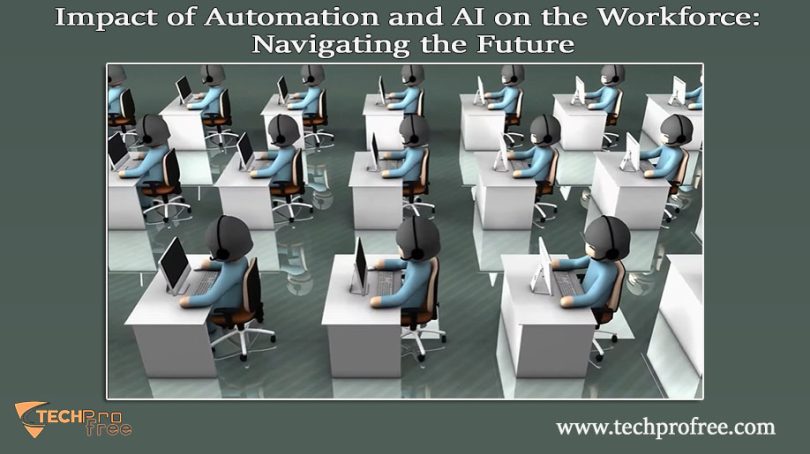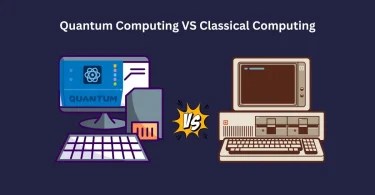People have debated the future of automation and AI for the workforce for decades. Some feel that automation will result in employment losses, while others believe it will generate more jobs than it will remove.
At the moment, we can see the influence of automation and AI on numerous industries through changes in employment rates.
The development of automated production equipment such as industrial robots and computer-controlled machine tools has resulted in major job losses in these industries.
Automation has been a part of our life since the Industrial Revolution, so this transition has already occurred. However, the pace of automation has recently escalated, resulting in more employment losses than job creation. Understanding the consequences of automation and taking necessary responses are critically crucial.
The Impact of Automation and AI on the Future of Work:
Despite the uncertainties surrounding job prospects, automation is set to play an essential function in determining the course of our lives.
The Rise of Automation in Different Sectors:
In the coming years, automation and AI will greatly impact fields such as engineering, law, medicine and journalism. This transformation will lead to the emergence of new job opportunities that prioritize creativity and emotional intelligence over mere coding or data analysis.
The Changing Landscape of Work: Automation’s Ongoing Transformation.
AI is reshaping the evolving environment of labor. Human employees are being replaced by automation in the form of computer programming, machinery and robots. While this trend has been ongoing for a while, it is predicted to continue for the foreseeable future.
Automation in the Workplace: Benefits and Challenges.
Automation has various benefits, including reduced labor costs, increased production and improved overall quality. Nonetheless, technology poses certain concerns, including possible job displacement and the need for labor upskilling. As we go forward into the future of work, artificial intelligence has the ability to simplify activities, increase productivity and reduce time consumption in a variety of industries. Adopting these technical advances with caution will be critical in maximizing the benefits of automation while properly tackling its problems.
AI’s Growing Influence on Job Tasks and Industries:
Artificial Intelligence has been present for some time, but its impact on work has significantly intensified in recent years. AI is capable of performing previously thought-impossible jobs and will continue to change our lives in the near future. It can analyze and draw insights from data on its own, allowing businesses to automate their operations with minimum human intervention.
Adapting to the Automation Era: Career Growth and Skill Development.
Considering the impact of automation on your career and whether it is a cause for concern is essential. The most evident consequence of automation is job loss, particularly in manufacturing, transportation and agriculture, where labor costs have drastically reduced due to automation.
Employer Considerations: Implementing Automation Wisely.
Living in an era where automation is gaining popularity, it becomes crucial to continuously hone your skills and acquire those relevant to the current market demands. Aligning your business goals with AI and automation boosts your career growth. Recent advancements have made automation more favorable than employing humans, as it enhances efficiency and productivity.
Job Replacements and New Opportunities: A Balancing Act.
Before incorporating automation into their operations, employers must be well-informed about its benefits and limits. When evaluating the automation of certain procedures, they should also examine the consequences on their workforce.
Automation resulted in employment replacements in some areas, as seen by manufacturing employees being replaced by robots, taxi drivers being replaced by self-driving cars and retail cashiers being replaced by self-checkout systems.
However, it is critical to recognize that AI has the potential to provide new career possibilities, such as software engineers specializing in bot creation, data scientists and research and development positions. Employers may make strategic decisions that not only boost efficiency but also foster long-term growth and development for their workforce if they grasp all sides of the automation spectrum.
Identifying Jobs at Risk: Automation Trends and Technological Advancements.
Understanding which occupations are most vulnerable to automation is critical. While automation has always been a process, current technology developments and the rise of AI have expedited its progress. The presence of automated processes in areas such as manufacturing and agriculture suggests that this issue is not new, but it is growing quickly.
Summary:
To summarize, automation and artificial intelligence are reshaping the workforce, bringing both benefits and difficulties. The capacity to adapt, learn new skills and make educated judgments about incorporating automation will be critical in the future of work. Accepting this technological transformation with caution will pave the road for human-machine cohabitation, promoting creativity and crafting a successful future.




Leave a Comment